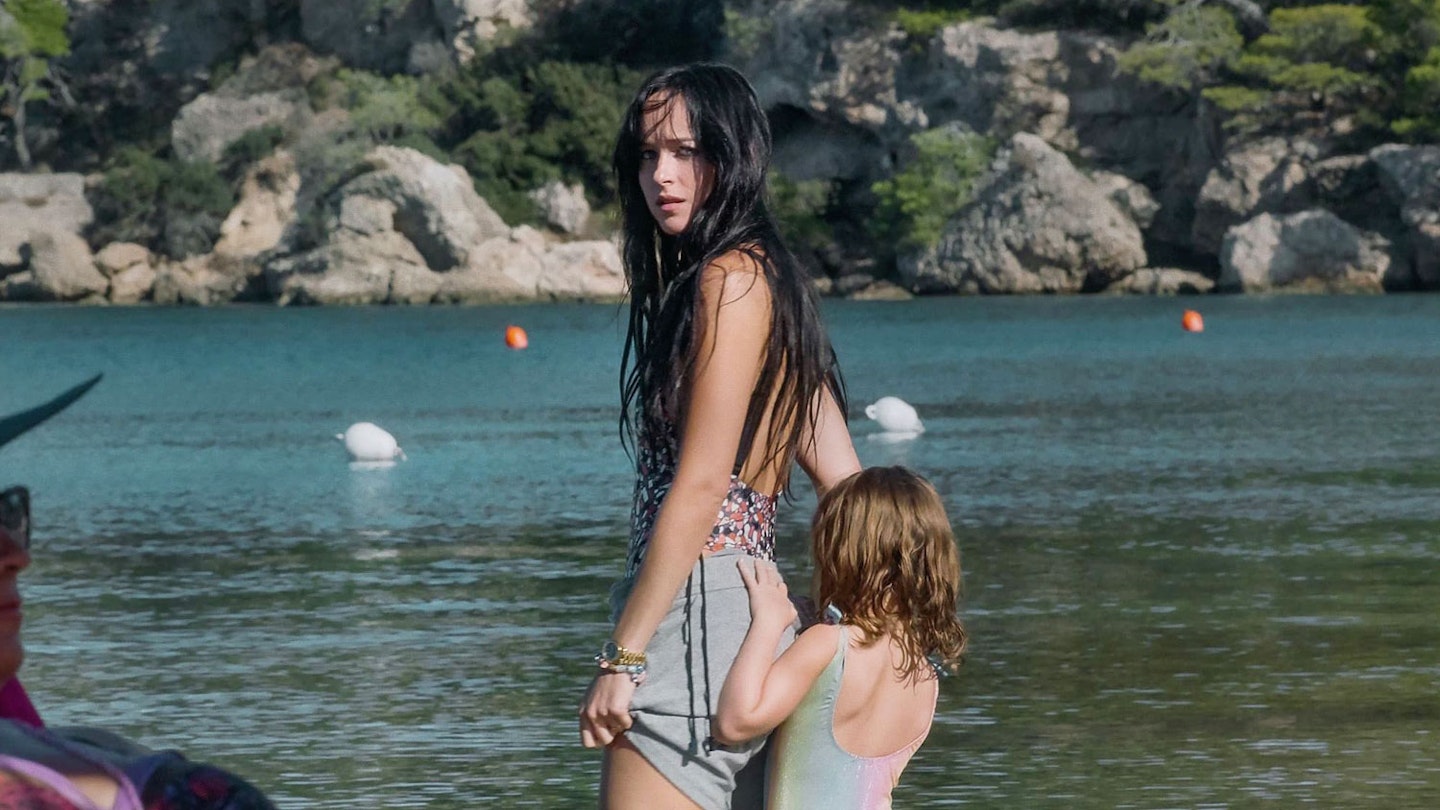The air is salty and the sun is warm, but the fruit bowl is rotting. Something is very wrong for 48-year-old professor Leda (Olivia Colman), who is trying to relax on her “working holiday” on an idyllic Greek island but can’t shake the ghosts of her past. These aren’t just vague, hypothetical fears or regrets — the things haunting Leda are made of her own flesh and blood, with memories of her family weighing down her bones. In her directorial debut, the always impressive actor Maggie Gyllenhaal tackles Elena Ferrante’s visceral 2006 book to tell a story of female experience that relishes the ugly, uncomfortable parts of being a mother, daughter, lover, stranger. Womanhood is an experience so often romanticised both in fiction and real-life public encounters — but Gyllenhaal makes a point of shattering the illusion.
For Leda, the first fissure comes after a large, loud family marks their territory while infringing on hers on the beach. Her eye is drawn to Nina (Dakota Johnson) and her young daughter Elena (Athena Martin) — and after Elena, and her beloved doll, go missing and Leda finds them both, this young girl awakens something in Leda. She’s thinking about her own children, the now 20-something Martha and Bianca, in ways her younger self (played in flashback by a magnificent, mercurial Jessie Buckley) wanted to forget.

It all starts with Gyllenhaal’s performers — so wildly different yet fitting together in a complex puzzle. Buckley fizzes with a desperate, exhausted mania as a mother spiralling out of control and so far into herself. It’s a turn then calcified by Colman into something more bitter, dumbfounding and deliciously selfish. And then there’s Johnson as Nina, diametrically opposed, perfectly capturing a gentle sadness.
Gyllenhaal’s vision is mostly impressive. The women thrive in the filmmaker’s arresting world.
The Lost Daughter could have so easily relied on its actors to perform Ferrante’s beguiling, twisty story like some kind of drama-school exercise (as can often be the case with actors-turned-directors), but Gyllenhaal’s vision is mostly impressive. The women thrive in the filmmaker’s arresting world (it’s worth noting the men are incredibly well cast too, but this never was about them), which visually homes in on the beauty and decay of the human body (“They’re so soft when they’re young,” Leda fondly remembers of her daughters’ skin) and the tactile pleasures of intimacy in all forms — and just how cold we can feel without it. The sensual camerawork is buoyed by an elegant score by former Tindersticks member Dickon Hinchliffe, alongside some choice needle drops.
“We don’t want justice, we don’t want freedom, we just want someone to love,” Talking Heads brazenly sing on ‘People Like Us’ — and there’s both glee and despair on Leda’s face as she sings it back, a breeze in her hair and nobody by her side in her spacious hire car on those winding Greek roads. Gyllenhaal doesn’t need to spell out her pain. The absence of love is fascinating, in a film that might raise more questions than it answers but is often more rewarding for it.

